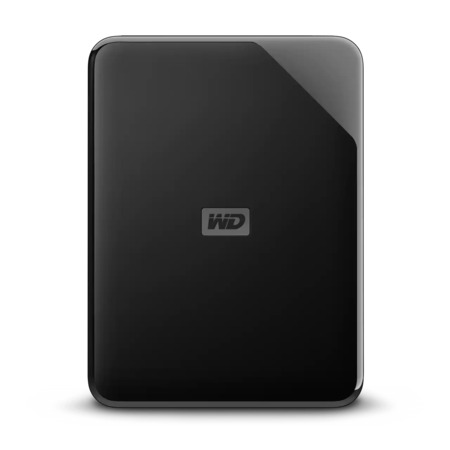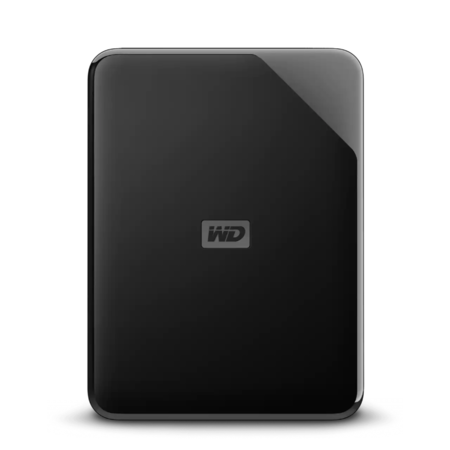expiredBruinnn | Staff posted Nov 24, 2024 12:54 AM
Item 1 of 2
Item 1 of 2
expiredBruinnn | Staff posted Nov 24, 2024 12:54 AM
WD Elements SE Desktop USB 3.0 External Hard Drives: 6TB $140, 5TB $100, 4TB
+ Free Shipping$80
$125
36% offWestern Digital
Visit Western DigitalGood Deal
Bad Deal
Save
Share


Leave a Comment
Top Comments
All computer hardware follows a "bathtub curve" of failure rates. If a failure were to happen, it's statistically more likely to happen when it's new...or old. Usually if makes it past the "breaking in phase", it's good for several years. Usually. Hopefully.
Like all things statistics, you don't want to be the outlier. Therefore, protect yo' self.
There are various names and schemes for consumer backup methods. Here's mine. "You should always have three copies of your data, each on a different physical piece of hardware, and one of them NOT geo-located with the other two."
Let me explain.
Let's say you have a laptop with IMPORTANT FILES on it. That's great! You should back that up. Some people just make a copy on the same laptop. See, there's two copies, it's backed up right? Well...kinda. But no. It's not. What happens if your machine is stolen? Or zapped by a lightning strike? Or suffers a catastrophic failure? Both those copies are gone. Poof.
For the "best" backup, that file should be copied to an external hard drive (like the one in this post). Now if you make a change to the original, you need to make sure you make a copy to the external drive too. That's extra work.
But wait, you might remember I said "have three copies of your data". We only have two so far -- laptop and external hard drive. Well, what happens if your house burns down? You lose both that hard drive AND your laptop. You lost all your eggs, since they were in one basket. Solution: get another basket.
Some people might get a second drive and keep it at a friend's/relative's house or a safety deposit box. If you don't have many files, you can use a cloud service like OneDrive or Google Drive or DropBox.
Typically speaking, people will have photos out the wazoo -- so the cheapest way to ensure they're backed up is to get a second hard drive.
Now, this can be good too -- if the hard drive is away from your home, it might not be updated as often. That means there's a high "delta" whenever there's a change to your files compared to what's on the drive. In case you get hit with a virus or a ransomware attack, you might have a copy of your files that AREN'T infected.
How frequently should you back things up? Well...that depends. What's your tolerance for losing changes? How often do you make changes/additions to your files? My resume might stay stagnant until I'm job searching, then it gets a flurry of updates. But my photos might continuously grow in number.
There is software that can help with this, but that's usually at additional cost. In the end, your backups are only as good as the last time you tested them. Make sure your files are still intact on the hard drive -- open them, make sure they're not corrupt, etc. Otherwise, a bad backup is no backup.
Some things, like scans of important documents/taxes/resume/thesis research might be backed up even more -- on hard drives, on several cloud services, etc. There are more than 3 copies. But no less than three. This means a lot of work to keep things straight. It's better than the alternative of losing it all.
Now this is a lot of "what ifs" and "mights" and "suppose" scenarios. That's risk manglement for you.
67 Comments
Sign up for a Slickdeals account to remove this ad.
Our community has rated this post as helpful. If you agree, why not thank LavenderPickle7682
All computer hardware follows a "bathtub curve" of failure rates. If a failure were to happen, it's statistically more likely to happen when it's new...or old. Usually if makes it past the "breaking in phase", it's good for several years. Usually. Hopefully.
Like all things statistics, you don't want to be the outlier. Therefore, protect yo' self.
There are various names and schemes for consumer backup methods. Here's mine. "You should always have three copies of your data, each on a different physical piece of hardware, and one of them NOT geo-located with the other two."
Let me explain.
Let's say you have a laptop with IMPORTANT FILES on it. That's great! You should back that up. Some people just make a copy on the same laptop. See, there's two copies, it's backed up right? Well...kinda. But no. It's not. What happens if your machine is stolen? Or zapped by a lightning strike? Or suffers a catastrophic failure? Both those copies are gone. Poof.
For the "best" backup, that file should be copied to an external hard drive (like the one in this post). Now if you make a change to the original, you need to make sure you make a copy to the external drive too. That's extra work.
But wait, you might remember I said "have three copies of your data". We only have two so far -- laptop and external hard drive. Well, what happens if your house burns down? You lose both that hard drive AND your laptop. You lost all your eggs, since they were in one basket. Solution: get another basket.
Some people might get a second drive and keep it at a friend's/relative's house or a safety deposit box. If you don't have many files, you can use a cloud service like OneDrive or Google Drive or DropBox.
Typically speaking, people will have photos out the wazoo -- so the cheapest way to ensure they're backed up is to get a second hard drive.
Now, this can be good too -- if the hard drive is away from your home, it might not be updated as often. That means there's a high "delta" whenever there's a change to your files compared to what's on the drive. In case you get hit with a virus or a ransomware attack, you might have a copy of your files that AREN'T infected.
How frequently should you back things up? Well...that depends. What's your tolerance for losing changes? How often do you make changes/additions to your files? My resume might stay stagnant until I'm job searching, then it gets a flurry of updates. But my photos might continuously grow in number.
There is software that can help with this, but that's usually at additional cost. In the end, your backups are only as good as the last time you tested them. Make sure your files are still intact on the hard drive -- open them, make sure they're not corrupt, etc. Otherwise, a bad backup is no backup.
Some things, like scans of important documents/taxes/resume/thesis research might be backed up even more -- on hard drives, on several cloud services, etc. There are more than 3 copies. But no less than three. This means a lot of work to keep things straight. It's better than the alternative of losing it all.
Now this is a lot of "what ifs" and "mights" and "suppose" scenarios. That's risk manglement for you.
Sign up for a Slickdeals account to remove this ad.
I still use them, I still buy them.. but one drive is not the option. Make sure you have another backup somewhere for anything important. It's great for having a backup at home, or using for extra storage, but in general if you can afford the space for a larger enclosed external-drive, I feel those are a bit safer in the longterm and can be just as cheap
Our community has rated this post as helpful. If you agree, why not thank BoastfulCabbage9988
Sign up for a Slickdeals account to remove this ad.
https://support-en.wd.com/app/ans...ifference
Leave a Comment